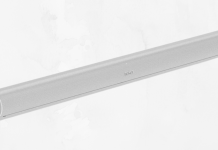You don’t have to be an air conditioner specialist to identify problems with one. Understanding the most common issues with AC systems can greatly aid in averting breakdowns. Who wants to be cooped up in a scorching summer without air conditioning? Nobody! Here are ten Air Conditioning problems that everyone should know about:
Do you need help with your air conditioning system at work or at home? Contact HVAC San Diego King | Heating and Air Conditioning System Installation services.
- Running AC continuously
In hot weather, it’s normal for the air conditioner to operate more often, but it still needs to shut down occasionally. You can protect important components and avoid a spike in your energy costs by fixing an AC that won’t turn off.
To begin with, see if turning off the thermostat fan also turns off the air conditioner. If not, get in touch with an expert. Competent specialists can identify issues immediately and complete repairs on the first visit.
- AC not working
It is frustrating when you get up in the morning and discover the air conditioner won’t turn on no matter what temperature you lower the thermostat to. This issue arises because a circuit breaker has tripped. Other causes include a broken thermostat or frayed wires.
Avoid attempting to fix the wiring on your own. Contact licensed HVAC technicians that can identify any electrical issues with advanced diagnostic tools.
- No Cool Air Flow
This problem can occur in two different ways. Firstly, even if there isn’t any air flowing from the ducts, you might hear the AC running. Secondly, even though you can feel some air, it doesn’t seem cool.
It is recommended to leave such issues to experts who can check for wear and tear and take steps to fix the issues.
- Blowing hot air out
Why does your AC produce hot air rather than cold air? The last thing you need when you’re sweating inside the house is to feel warmer.
To avoid clogs, change your air filters every month or two. You should also have your ducts cleaned at least once a year. Always have a professional inspect your AC for leakage before adding refrigerant.
- Water Leakage
Most refrigerant leaks are difficult for homeowners to find because they occur in coolant lines. Brightly colored stains next to the AC unit are an issue. It’s normal to notice some condensation outside the air conditioner, but too much moisture could indicate water leakage.
If you discover a refrigerant leak, immediately turn off the appliance and contact experts. One of the most expensive parts to replace, the compressor, can be badly affected by low refrigerant levels.
- Unit Frequently Turns On and Off
Short cycling is another name for this problem. The air conditioner repeatedly turns on without finishing a full cooling cycle. This is a significant problem that might affect the compressor.
Clogged air filters or thermostats that are out of calibration may sometimes be the issue.
- The AC System Is Freezing
Your AC is working too hard to keep your home cool when you see frost surrounding the copper line set or AC coil. You can cut your electricity expenses significantly by taking care of this issue.
Ensure to Hire professionals that will examine the condenser, ductwork, and fan for obstructions.
- Circuit Breaker Trips on Air Conditioner Frequently
Poor AC installation is one of the causes of this issue. It’s not a good idea to hire the cheapest handyman to install your air conditioner. You’ll encounter this problem if the wiring or the circuit breaker isn’t rated for the output of the HVAC unit.
- Unusual Smells from the System
A burning odor is one indicator of AC issues. Additionally, some homeowners detect musty smells. These odors could be noticeable around the primary AC unit or from the vents.
Turn off the AC if you smell something burning. Check out the air filters. Change them if they appear soiled. A nice strategy to prevent unpleasant odors in your house is to schedule routine cleaning of the duct and air conditioner.
- Strange Sounds
Hearing sounds that you have never heard before should raise the alarm. Strange vibrations, screaming, or grinding sounds indicate a pressing issue.































